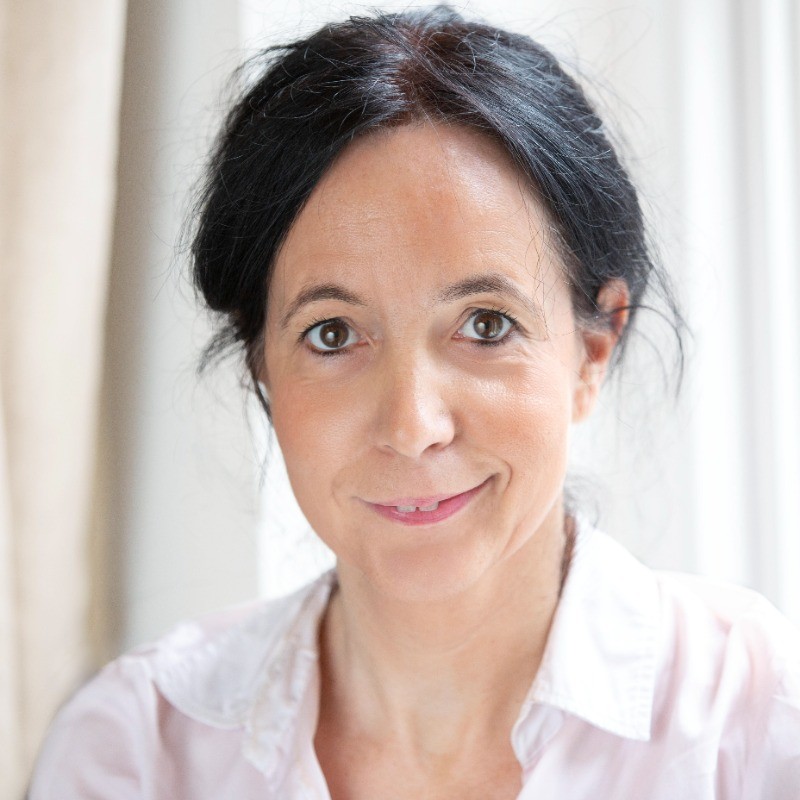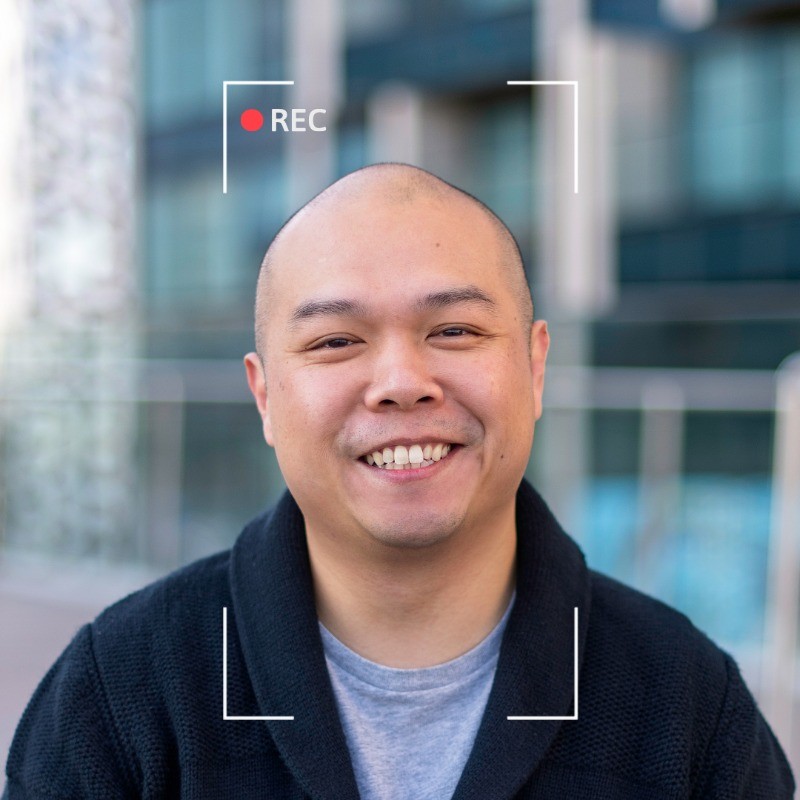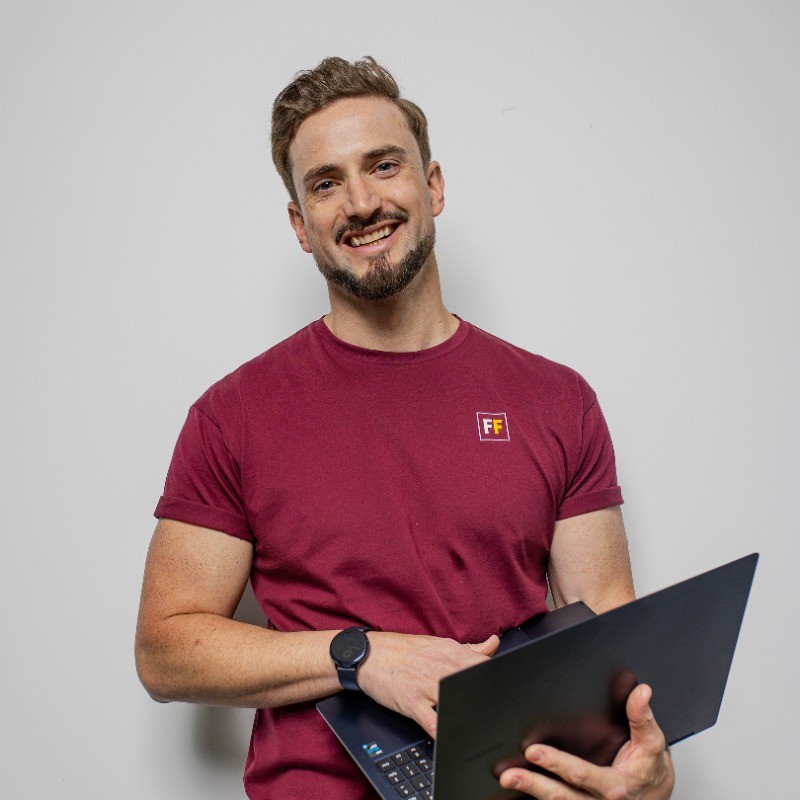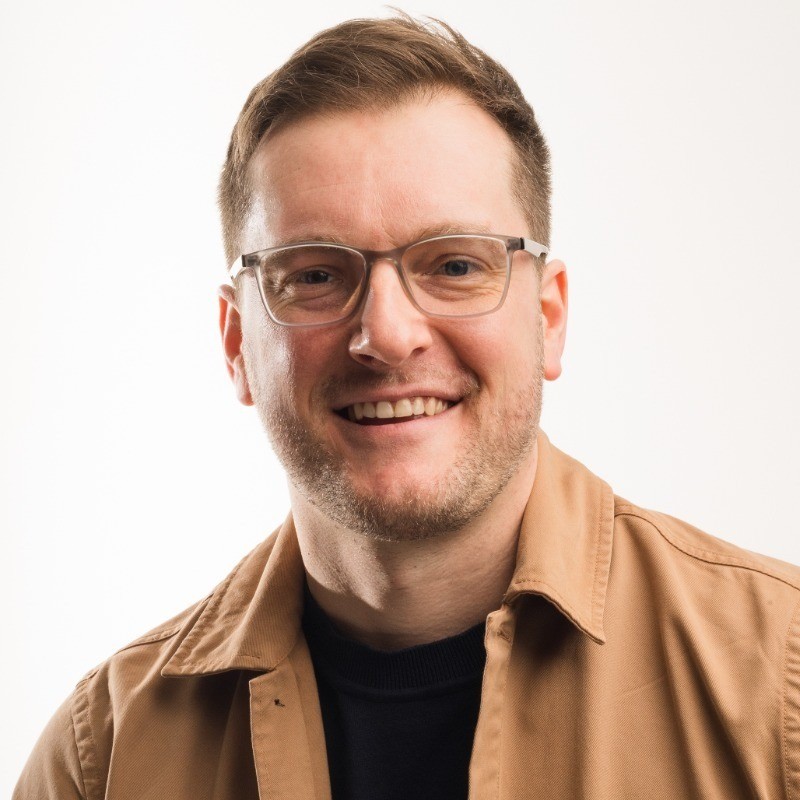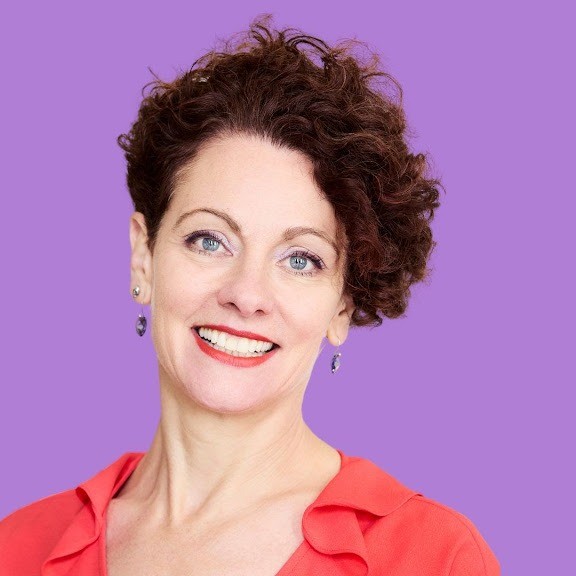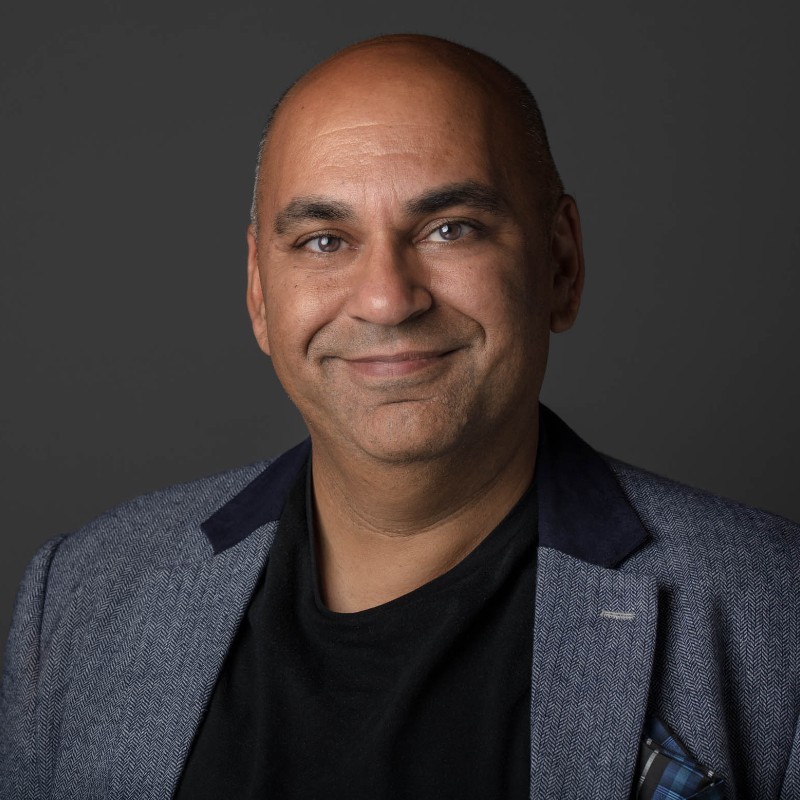B2B My Guest with Niraj Kapur
Charli Hunt: Thank you so much for coming on the podcast. We're so, so lucky to have you. I'll let you introduce yourself. Please let everyone know who you are and what you do.
Niraj Kapur: Hi everybody. My name is Neeraj. I'm a LinkedIn top voice and sales trainer. People approach me when they want to close more sales. However, when I spend time with them in about 99.9 percent of cases, closing sales is never the problem. The problem is they don't know how to overcome objections. They can't do outreach.
They struggle with ghosting. They don't know how to do follow up or understand sales process or negotiation. So I teach people all those things. And when I teach it to them, the sales part at the very end is actually easier than you'd expect. And that's what I do. I just make the sales process easier to understand, more enjoyable, but more importantly, more successful for you.
Charli Hunt: I love that. Just shows how holistically you do everything. It's brilliant. I've got some interesting questions for you today. The first one I really, really want to ask you is what trends do you see shaping the future of sales and LinkedIn networking?
Niraj Kapur: With sales, the big one is that instead of improving sales, which is what most people should be doing, they're unfortunately investing very heavily in technology, which isn't working. So people are trying to use AI to send sales outreach, which is pretty terrible. AI is moving at a very fast pace and of course you need to keep an eye on it.
That's very important. AI in sales is not developed yet. You try rewriting sales articles with chat GPT, you're either stealing from other people or writing articles that are way too long. Which isn't good for LinkedIn's algorithm, because that prefers short form articles. So, AI is not very developed. A lot of people are investing heavily in automation. Thinking, I will reach a thousand people a day. Which again, is a terrible idea. Because it's deeply impersonal, and it's copy and paste. And to succeed in 2024 and beyond, you need to personalise your LinkedIn DMs and you need to personalise your emails. Otherwise you're going to fail horribly. And I keep saying this over and over again.
And even today, Charli, I've had, give me one second. I've had approximately 20 LinkedIn DMs, uh, 19 of them. I've immediately archived, which means I've ignored them because they were copy and paste. And one person I have blocked because he spammed me two days in a row. You spam me on a Sunday and a Monday, that's really unprofessional.
And that's what they did. Hi, did you get my message yesterday? Actually, yesterday was Sunday. So you don't message somebody on a Monday saying, did you get my message? That's just really bad practice. So AI is not as developed as it should be. Stop looking to AI. And chatGPT and automation to solve your problems. There are people spending 10 as much as 20, 000 pounds a year on LinkedIn Sales Navigator because they can spam 50 people a month. Please stop doing that. Get the basics right first. Once you get the basics, right, you can do what you want, but get the basics right first, because you'll save so much money, but you have to learn how to do outreach and follow up.
And this is why I teach people because when they get that right, everything else starts to fall easier into place.
Charli Hunt: Brilliant. And what are the basics? What are the things that you make sure people have sorted before you teach them anything else on top?
Niraj Kapur: The basics are personalizing an email, and that's a big deal. So I've had an email today saying, Dear Everybody Works In Sales, which is the name of my company. I mean, Dear Everybody Works In Sales? How lazy are you? I've had three people say, Hey. Not Dear Neeraj or Hi Neeraj. Hey. At least once a week someone from America goes yo, and I'm like stop this stop calling me Yo, I mean, this is so unprofessional.
I would never call the CEO up and go yo Yo, Microsoft. I want to work with you. I would never do that. But yet people do these awful best practices which aren't best practices So the first thing you should do in an email is either mention something about the company that you've read on their website, or mention something about the company you've read on LinkedIn, either their company page or the individual's personal page, if they of course post on LinkedIn. This is absolutely vital. Now, If for whatever reason the person doesn't post on LinkedIn, because not everybody does, and if for some reason the company's website hasn't been updated for six months with Press Releases, which unfortunately the smaller ones don't, then at least share some insight that's going to give that person massive value. So if I want to do business with somebody on a sales level, I will say something like, 90 percent of business Isn't the follow up and yet most people have no idea how to follow up properly Here are three things your company can do and your staff can do to help follow up properly boom boom boom If this is of interest to you happy to have a chat now notice nowhere in that conversation.
Have I said hi I've got 30 years experience. Hi. I'm the award winning coach. Hi. I'm a LinkedIn top voice Hi, I'm one of the very few people in the UK that gets regularly invited to LinkedIn's headquarters because nobody cares. They really don't. All they care about is, how can I help them? And I go straight into the problem, there's a good chance that business owner is having, because most people don't follow up properly. And that is how you engage with people. You give either massive value, or you highly personalise the email to something they've done on Google, or on their website, or on LinkedIn.
Charli Hunt: That's amazing. So it's something everybody can do, but nobody ever takes the time to do it.
Niraj Kapur: 99 percent of people. I have had one meeting this year from someone who sent me a cold call. One meeting out of probably a thousand emails and about 500 DMs. One meeting. And that was because it was a really good cold call. He had referenced an article of mine he'd read. He said how much he enjoyed the article.
He congratulated me on my three books. Most people have no idea I've written three books because he actually read my profile and I had a look at my LinkedIn Premium and I noticed he'd looked at my profile, so he'd taken the time and earned the right for that meeting, and I've met him, and now I'm meeting his boss, and I might end up working with this company.
That's how effective good cold emails and good cold LinkedIn DMs are. It doesn't even have to be great, it just has to be good, because the standards are so low.
Really and truly that low, you know?
Charli Hunt: That's brilliant advice. Well, we don't need to do any more podcast.
Niraj Kapur: That's it. Great to see you, Charli.
I'm going to catch up soon.
Charli Hunt: So you're obviously, you're a busy guy. You've written three books. I see you everywhere doing lots of amazing things. You're going to LinkedIn's headquarters. And I think we often hear that from leaders in larger organizations that they don't have the time to post their thoughts on LinkedIn.
So we can hire ghost writers for them, we can do all of that, but if they don't take the time to sit down and give us their thoughts, it's not gonna be really interesting LinkedIn content. And it's not gonna move the sales needle forward. How can we get more leaders in big, big business to post on LinkedIn?
Niraj Kapur: It's really hard to give someone who earns millions of pounds a year and say, has a hundred million turnover, It's very difficult for me to say to them, you know what, you really should be on LinkedIn. Because that is the least of their concerns.
They have much more bigger things to think about. So my advice to them is get your staff on LinkedIn. Your sales team and 100 percent your marketing team. Because among the worst people on LinkedIn are marketing people. I'm sorry they're the worst. I spoke to somebody this morning and I asked him, why are you sharing posts for? Because it's a terrible thing to do. It's a terrible best practice. You don't get leads sharing posts. You don't build your following sharing posts. You don't build credibility. Why do you do it? He goes, "Oh, the marketing team told us to". And I hear this every single week. Marketing people have no clue. 99%, again, 99 percent of people have no idea how to use cold outreach. 99 percent of marketing people don't know how to use LinkedIn. Which is disappointing. And the number of marketing people I see speaking at events about LinkedIn is also disappointing. They give such generic, trite advice like, just be yourself and, and be consistent and you'll run a business.
No you won't. Consistency and authenticity are important. But they're tiny parts of it. There is so much more you have to do as well, but everybody thinks it's easy. It's like when you watch a reality show on TV and you think "I could do that". No, you can't, take it from a guy who tried to be a rockstar age 19. And thank God there were no reality shows in my days. And I went to England. I had longer hair, a six pack. For those of you listening, I look pretty decent at the moment. I got, I look like Shrek. I got a head shaped like an egg and no hair. But I was really into my music and I wanted to be a rock star and I recorded demo tapes, but I wasn't consistent.
I cared about the wrong thing. I didn't practice it properly. And I failed horribly. And that is what happens. And most people will try sales, fail horribly, try it again, spam, fail horribly and give up and go, you know what? Sales is a terrible profession. And then they end up wasting so much money on con artists on LinkedIn who say, "Hey, I'll teach you how to get 50,000 followers" or "Hey, buy my system and I'll teach you".
And there's so many people teaching wrong practices. That's the real problem. So in terms of leaders of smaller businesses, it's a bit easier, not much easier, because they're still busy too. But it's a bit easier to convince them to use LinkedIn. And it's like anything, Charli, you always start with baby steps. If I say to somebody, look, you need to be posting five days a week, it freaks them out. They haven't got the time or the bandwidth to do that. But if you say, start off once a week. and build to twice a week and you get a bit more confidence and you build to three times a week. As a leader, that is absolutely fine.
You do not have to be on LinkedIn every day and you certainly don't have to be on LinkedIn Monday to Friday posting because it's hard work and it's time consuming. Now business owners can do that no problem, but leaders of businesses three times a week is all you need.
Charli Hunt: And just for anyone who is listening, Neeraj does not look like Shrek. You've aged fine. You're all good. You've been in this sales game for 30 years, did you say?
Niraj Kapur: Yeah. 1994. I started and it's
2024 now. So 30 years, which is incredible. And like most people, I thought, you know what? After a few years, I'll be out of here. I'll get a proper job. But I think about five years into it, I started to see the benefits. Don't get me wrong, no matter what you do in life, no matter what skills you have, no matter how hard you work, you do need a bit of luck now and again. You can't see somebody successful and go, "Oh, they got lucky". No, you have to get lucky now and again. If you keep working hard and you're a good human being, you will eventually find luck. I personally can't tell you when it's impossible to say, but it's often only years later you realise, you know what, I actually had a pretty good career. I look back at my career with tremendous gratitude that I had good bosses who saw potential in me and encouraged me. And I think also I had good skills as well and good habits. So I come into the office and I work hard. I outworked most people. Now, outworking, working long hours isn't very smart in the modern age. You're going to work hard, but you shouldn't work every hour of the day because work life balance is important. But you really do have to work hard and learn and have people who believe in you and you have to ask questions. And most people who get stuck in sales do not ask questions. They do nothing or they default to stupid and just spam people, neither of which is a good option.
Charli Hunt: In the last 30 years, apart from the salaries, what do you think has changed the most in that sales landscape?
Niraj Kapur: Very heavy reliance on technology. So people today spend so much time updating the CRM, checking Slack, looking at WhatsApp, looking at their phone. If they have a desk phone, looking at their desk phone as well, getting more notifications through other software, getting interrupted by AI, having social media apps on their phone. Most people I speak to are constantly distracted and most people struggle with mental health because they spend all day staring at a laptop, then lunchtimes staring at their computer screens, and then when they get home at night they will spend more time on their mobiles or more time watching Netflix or Amazon Prime. And it is such an unhealthy culture we live in. And we're so busy that so many people I speak to, they're struggling. Because I always ask people about their routines when they're struggling. And they almost are all the same. No matter what company they work for, no matter where they're based in the UK or Europe, it's almost always the same. They spend far too much time staring at technology. They're often living off takeaway foods. Or TV dinners. They're not taking moments of quiet through the day to reflect or pause, and they're not taking care of their physical health either. So you have to take care of your mental health. You have to take care of your physical health.
And look, don't get me wrong. I have no idea. There's people watching us going, Neeraj, you're a pretty big guy. Who are you saying to us to take care of our physical health? Yes, I'm a big guy. I love wagon wheels and hobnobs and breakaways and jaffa cakes. Of course I do. But here's the thing. I work out four times a week. I walk every single day, 10, 000 steps. On top of that, I meditate. I take amazing care of my mental health. That is how I'm able to perform well. I don't perform well because I'm exceptionally intelligent. I don't think I am. I don't perform well because I'm a genius because I'm not. I do take a lot of time to take breaks from technology to pace myself and I do take tremendously good care of my mental health. And these are things people should be thinking about because they help elevate your sales game. Most people think of sales in an isolated compartment and that's a big mistake.
They think I must close more deals. I must learn 10 ways to close a deal. I must get more automation. No. Take care of your mental health. Take care of your physical health. Get your attitude right. Ask for help. Read books. Or if you're young, listen to podcasts or watch YouTube. But you have to be doing these things every single day.
This is my 30th year in sales. I am still learning every day. I still have coaches I work with. I don't do it for fun, and it costs me a lot of money. But I do it to keep my skills sharp. And you have to do that.
Charli Hunt: You were saying "Oh, I'm not the cleverest", but you have this amazing gravitas and a confidence in your opinions so for you, I guess going on a podcast or speaking in front of people or training people or even writing a LinkedIn post obviously it's a skill that you've sharpened, but it must be a lot easier.
What would you say to someone who's starting out that they want to share their expertise on LinkedIn, let's say, but they don't really know where to start. They're not sure that their opinion is important. Where can they start to build that confidence?
Niraj Kapur: I love that question because it's really important. So when you start out you always start out at the bottom. When I started on LinkedIn, I started at the bottom. I did not start midway through or towards the top. I started at the bottom and worked my way up. So it's important to understand that anything you do, you start at the bottom. And the only way is up. That's actually a positive. Don't look at it as a negative, look at it as a positive. The second thing is nobody is judging you as much as you judge yourself, people are too busy with their lives. Nobody is sitting around, apart from one or two haters online, nobody is sitting around going, "Oh, let's see what Niraj does today". They're not, because they're busy running their own businesses, or working nine to five for somebody else and trying to hit their targets. So please keep that in mind. Everybody starts at the bottom and nobody is judging you as much as you're judging yourself. And in terms of confidence, yes, I have tremendous confidence now, but that's come through years of practice, practice, practice in business, but also years of overcoming trauma in my personal life. From the trauma of divorce and losing so much. From the trauma of rebuilding your life again in your late 40s as a man, which is unbelievably difficult. Men aren't good at making friends in general, and the older you get, the more difficult it is. So I have had to overcome a lot in my life. And I've done it. It took me quite a few years. It required a lot of therapy and patience, but I did it. I overcame those difficult times.
And when you overcome difficult times, you get a certain joy of life and a certain confidence. So when I talk to people, I'm always very positive and very happy and understanding because I've been through the mill and I've got the scars. But more importantly, I came out of it a good person. I see a lot of men in their 50s and it just seems our mission in life is to bring the whole world down with them and their negativity and their hatred and I do everything I can not to be that person because you always achieve more in life with a positive attitude and you always achieve more in life by just caring for others.
I don't care how old fashioned or soppy that sounds, it's a good fact of life.
Charli Hunt: I really love that. There are some people who are really good at sales, but it feels like they're pushing and they're pushing and I think the way they often get sales is a numbers game . How do you become more like the kind of person who's brilliant at sales and they just seem natural?
They just. Keep your trust. They almost feel like they just help you to find out that their product is or service is the best thing for you. How do you become more like that second sales
guy rather than the first?
Niraj Kapur: The first thing you have to do is have a little mindset shift. It's a really simple one You're not selling you're helping people and if you sell with that attitude, I'm gonna help somebody I call it serving but serving is a very big word for a lot of people. So just call it helping for the time being. How can I help this person? So that's the first thing you have to do is change your mindset. The second thing you have to do is understand psychology. So what are the reasons why people buy? Well, people buy to earn more money. To save money, to reduce stress, to streamline operations, to look good and feel good, to impress other people, because the boss tells them to, because they have a green agenda, or because they like and trust you.
Those are the variety of reasons why people will buy pretty much anything. And sometimes it's more than one reason. So anytime you contact anybody, you have to include one of those reasons why. So you'll notice earlier, I said that when I do cold outreach to people and I talk about follow up, 90 percent of business is in the follow up and most businesses lose money because they're not following up properly. Here are three things you can do that will help you make more money. So I talked about help you save money. I talked about helping you make more money and I guess subconsciously you're going to reduce stress. These are three things I've just done to make your life easier in less than a paragraph. That is how natural it'll eventually become. But you have to practice this daily.
You can't just sell once a month and cross your fingers and hope for the best. It's like anything. It has to be a daily practice, even if it's just 30 minutes a day. It has to be a daily practice
That's what I find with public speaking, for example. I'm not great at public speaking, and I feel great after I do it, but then if you let it go too long, you get back to square one again. And it's the same with sales, really, isn't it? You have to just keep going and do it consistently.
Niraj Kapur: I'm speaking at an event tomorrow night and I haven't spoken for almost Goodness, two months now. I've spoken on Zoom, which is a bit different,
but I haven't spoken in public in two months only because my one to one coaching work is just, I get so much joy from it. And I've been travelling a lot on business recently and doing a lot of charity work recently.
So the speaking work has just been to the side. I hired my speaking coach this morning. And we spent an hour working on the speech. So that's a smart investment. I read, You Were Born to Speak by Richard Newman. I've got that book and I just literally have it underlined and I was reading it last night and just reading it again today.
I'll most likely read parts of it tomorrow, just the underlying passages to keep my skills sharp. I will practice the speech again tomorrow without slides this time. Now I've done this for like five years. I've been a speaker and I get paid to be a speaker and yet look how much effort I'm putting into this talk tomorrow night. It's not the biggest talk of my life. There's only 15 people in the room. It's not a big room. But there are 15 people who have paid to see me speak. And I'm putting in so much effort just to get a 25 minute speech right. That's it. 25 minutes with Q&A afterwards. And I'm putting in so much effort because if you're going to do something, do it properly.
Don't do it half assed. Nobody needs more half assed people in business. They really don't.
Charli Hunt: I agree. Which is a great segue into my next question. Why should someone hire someone to train them with LinkedIn or with sales?
Niraj Kapur: You can spend years of your life on Google trying to learn something and you'll become overwhelmed and you'll become confused. It's like going on a diet. I would never look on Google for diet advice. I could spend months losing myself. What I would do is called nutritionists to give me advice. And I ended up paying a kinesiologist last year and she goes, yeah, you're wheat intolerant. The NHS didn't pick it up, but I went privately and they did. And all of a sudden my health is better because I'm not suffering bloating anymore because I went and saw an expert.
That's a really good example. Same goes for LinkedIn. You can waste months, even years on Google. You can waste months or even years on YouTube. Watching video after video from about 20 different people. Or, you can save yourself a lot of stress. You can save yourself a lot of time by simply investing in a coach like me, who will listen to what you have to say and will guide you in the right direction.
Notice I didn't say You'll become my client because not everybody is my client and being able to say no to people is very important
Charli Hunt: And why should teams hire you as a LinkedIn trainer? You coach individuals and you coach teams as well. What's the difference between the two? So let's say someone was deciding between getting trained as a team or getting trained as an individual. What's the difference between those two processes?
Niraj Kapur: As an individual It's fantastic as you really develop a relationship with the person and it's deeply personal one to one coaching. It just stays between me and the person I coach. Whereas with group training, there's bigger numbers involved so it's really hard if there's like 10 people in a room. It's so different It's more fun And it's way more interactive and it's louder and I do enjoy that kind of training, but you don't develop the same kind of relationships with people afterwards. But one thing I do, which again, I've been coached so much by many training companies and what they don't do is after the training is keep you accountable. And that's how I differ from other training companies because I literally spend the time a week after the training going, okay, what have you learned? What have you implemented? And is there anything you're struggling with? I judge myself in results. When people hire me, they judge me in results as well. I teach modern day sales. A lot of sales trainers will teach stuff from years ago. PowerPoint is not very exciting and it doesn't really engage people. And people don't go, you know what?
I cannot wait to get back to work tomorrow to start this.
Charli Hunt: And when you say modern sales training, do you mean your techniques are slightly different or the way you teach people is slightly different or the content of what you teach them is slightly different?
Niraj Kapur: In the modern day and age, personalization, building relationships is everything, especially in the digital age. If you can build a relationship, it makes a difference. Last week on LinkedIn, somebody did a post of a thank you card saying I met Niraj recently and he sent me a thank you card in the post. What a lovely surprise that was. In today's digital world, how nice is it to get a thank you card that was specially handwritten and where you have to go to the post office, which I did, to post the guest stamp, to wait in the queue, to post a thank you letter.
And that's a great example of being a bit different because most people would send a thank you text or a thank you email, which I'm sorry, that's not good enough. And it doesn't make you stand out. But a thank you letter, a thank you card really does.
Charli Hunt: That's really nice. Are there any other slow sales techniques that you recommend to people?
Niraj Kapur: I would say take the time to build a relationship. Stop trying to get the deal on the first outreach. Majority of the emails, which I delete and LinkedIn DMs, which I delete people are trying to sell me on the first deal. They're trying to sell me the special offer. They're trying to sell me even the meeting sometimes.
That's not your job. Your job is to get my interest. And that's where most people go wrong. And when I do outreach to people, I'll give you a good example. Earlier, it's about getting the person's interest. I never send a Calendly link. I never say, hi, are you free Tuesday or Thursday for 15 minutes? Cause it's a dumb thing to say. And a cliche thing to say, your job is to get the person's interest and to understand this relationship might take a few months to build. This relationship might take six months to build. That is very important.
Charli Hunt: And what are some ways that people can build a relationship with prospects on LinkedIn or other B2B social media? Do you think there has to be a face to face element or can we build it online?
Niraj Kapur: Oh, it can be built online. Absolutely. Just face to face strengthens it. It makes it better. So I had somebody who reached out to me on LinkedIn and was very interested in coaching. Now I could have just arranged a Zoom call, but I said, you know what? I'm going to be in Belfast today. Why don't I come meet you?
We'll have some lunch afterwards. There's a brilliant sandwich place around the corner. He came into town. We had a sandwich. I met him face to face. Now I could have easily have done that over Zoom, but I thought while I'm in town. Might as well meet up, you know, and he very kindly drove half an hour to meet me, which I really appreciate it.
And he had to park in Belfast, which is expensive and we sealed the deal. We shook hands and as soon as I finished this podcast and doing the paperwork for him. To me, that is the joy of face to face. It just makes relationships much quicker and better. At the same time, the clients I have in Europe and Canada and North America, I can't meet them face to face and unless I actually go there on holiday or speak at a conference, I won't be meeting them face to face ever. But , simple things like sending a video in a LinkedIn DM or leaving a LinkedIn voice note. Those are nice personal ways to connect with people. It shouldn't always be just Zoom. Don't rely on Zoom too much. Think of other ways you can communicate with people as well that are still very human. And sending a video, by the way, like this on your phone, if anybody is listening, I'm just holding my phone sideways and I'm pressing record on my phone for 30 to 40 seconds and then pressing send through LinkedIn.
That is it. No editing, no lighting, nothing, or you can leave a voice note. So instead of typing a message on LinkedIn, there's a microphone button. And I simply hold that down and leave a message for 30 to 40 seconds where I will say, I really liked your post today. Here's what I liked about it. Or I'll wish him a happy birthday message. Or I'll say, you know what? I've done a post today and I talked about upselling. Now you mentioned upselling to me. So let me tell you three takeaways from the post I did today that will help your business going forward. One, don't be afraid to ask, you know, to make sure you have ideas in the back of your mind of what you can do for upselling.
And three, don't rush it. Make sure people are in contact with the company because the only time you contact your client is to upsell to them, it's not going to be very effective. Little things like that. It's constantly giving value to people, but it's not on email because nobody needs more email.
Charli Hunt: And what, apart from the cold outreach, what are some common mistakes that you see people make on LinkedIn?
Niraj Kapur: Common mistakes on LinkedIn are trying to get someone's email address. far too quickly. LinkedIn is a safe platform for people. And if the first time you email me you say, Oh, by the way, can I have your email address so I can send you some PDFs? No, you can't because I know I'm going to go into your funnel.
So again, don't rush the deal. Don't ask for an email too quickly, but really take the time to build a relationship. Relationships take time. They are not going to happen on a first outreach. I look at deals I've lost over the years, and it's because I rushed the deal. That's my fault, nobody else's. So please learn from my mistakes as well as your own and other people's. Take your time. You know, I can easily give 30 things to avoid on LinkedIn. But it's always better to do things in threes and fives because people can learn much quicker that way I found in coaching. So that's why I never give too many takeaways. It's not that I want you to hire me so I can tell you the rest.
It's because you have to make the learning manageable for people. So anybody listening to this or watching this, please take the time off or just get a pen and paper, look at me, very old school, holding up a pen and paper here and just take notes and say, okay, what action am I going to take next?
Having listened to Niraj, what can I do next? That's going to make me progress because sales is all about progress.
Charli Hunt: That's such brilliant advice. I've started doing that. So instead of listening to a podcast every time I go on a dog walk, which is twice a day, I have to stop on the dog walk and write something down if I learn it, because otherwise it's so easy to consume so much and never do anything with it.
So if you could just do one thing from every podcast you listen to, you will change your life in like a week.
Niraj Kapur: Yeah, I spend all day listening to podcasts, won't learn a thing, but it's so important to just take that break and note, what I'll do is I, instead of stopping, I'll often be in the car. So when I arrived today in Belfast for my meeting, I was in the car park, I took out my notepad, I just made some notes, because you have to do that, otherwise you're going to forget it.
Charli Hunt: Exactly. Yeah. And it's so easy, isn't it? Just to consume, consume, consume and never spend time applying it or creating anything of your own.
Niraj Kapur: Yeah, consuming is easy, taking action is hard. I've met people over the years that go from one personal development event to another personal development to another, and I'll meet them and go, I'm curious, you're spending a lot of money on this. What are you actually learning? Oh, we're too busy. Oh, we're an event next week.
I'm like, well, how about you don't pay 500 pounds for the ticket and another 400 pounds for hotels in London and travel and just take action and maybe don't go. If you're going to events all the time, what are you actually learning? Because it is easier to go to an event. Then take action. Of course it is. It's much easier to read a book than to take action from the book.
You know, the library behind me is, every single book I have either read in entirety. I've actually made the effort to learn it. I spend a bit of time thinking. Then I spend 20 minutes every morning reading. Usually it's emotional intelligence. And then the evening I'll spend 20 minutes reading and it's usually sales or management. But again, I'm reading. I'm not checking emails and reading.
I'm not on the internet and reading. I'm not watching Netflix and reading. I'm reading.
And that's very important in sales. Focus is important in anything really.
Charli Hunt: But also you're a sales trainer with 30 years experience in sales and you're still reading about sales for 20 minutes every day. That's amazing.
Niraj Kapur: You have to,
because you can easily forget stuff, of course, but also things are changing so fast in 2024. You have to keep up with things or at least be aware of what's going on. You can't just walk into a meeting going, you know what? I'm old school. I'm not going to deal with AI. No, you have to be, I have to be aware of AI.
I have to know what's going on. I may not agree with it all. Okay. In fact, a lot of it is a bit dumb. At the same time, I have to be aware of it because AI is changing so quickly.
Charli Hunt: Yeah, I love that. And one of the things I've learned in the last year is, I don't need to read every business book in its entirety. Sometimes they are just that length because they're one idea, but they have to be that length to sell on the shelves. So it's okay to just be like, you know what, I got loads out of the first three chapters, don't need the rest.
I really wanted to ask you a bit more about your books. So what motivated you to write them and what are the messages you want people to take away? I know you've got three and we haven't got much time left. Uh, so I'm happy if you just want to pick one, your favorite one.
Niraj Kapur: Everybody works in sales is my favourite because after 6 years people are still buying it. Now just to measure expectations, I don't buy thousands of copies a month. You know, but it still sells between 30 to 50 copies a month. Which I think is incredible for a book that's 6 years old.
Charli Hunt: It really is.
Niraj Kapur: And the reason people buy it, because I often reach out to them afterwards and say thank you, what made you want to buy it?
And sometimes I don't hear back from people, but those I do hear back from say, it's only 160 pages, it was incredibly easy to read, and it was easy to take action on. And that was brilliant. So my second book, um, The Easy Guide to Sales for Business Owners, I wrote just for business owners. But instead of all the storytelling and all the great drama that was in the first book, I just made it a reference guide thinking this is really going to help business owners. Because it's simple, it's short, it's a reference guide, and I'm lucky if it sells one copy a month. I mean literally, I think last month I sold two copies of it. It just didn't take off. And the third book was fascinating. It's called Business Growth, Lessons Learned from Divorce, Dating, and Falling in Love. And I took everything I've been through in the last few years with getting divorced, and the horrors of that, and rebuilding my life, and wrote a book on business, on mindset, and sales. And what's fascinating is most men don't care about it. Most women who've been with their childhood sweethearts don't care about it.
Most women who are happily married don't care about it. But women in their thirties, forties and fifties who are single, they love it. I've never done anything in my life that's divided people so much ever. It didn't take off the way I hoped it would, which is a bit disappointing, but people who read it love it.
And that makes me very, very happy.
Charli Hunt: And these things often snowball, don't they? So if people are loving it, it might just kind of pick up momentum and then you'll be on your way.
Niraj Kapur: Yeah. Everybody works in sales was a smash hit for three months and then it just quietly sold. That was it. Just every month it quietly sells. It's very quiet. It's in the background. It's what I call latte money. You know, it's about 150 a month in royalties. And I use that really for buying my lattes and cappuccinos.
Charli Hunt: Yeah, it's also the best book title. It's so good.
Niraj Kapur: Oh, thank
you.
Charli Hunt: love it. So is there one thing, that you'd like to leave people with? One takeaway?
Niraj Kapur: All I want to say is just please listen to this podcast or watch this podcast and take action. You don't have to take action on 20 things or 10 things. Just choose three things, take action, and then in a week's time, listen to the podcast again and then take action. That's what I do with podcasts that give me value. I listen to them at least a few times because every single time you pick up something new, don't just listen to as much as you can and try to consume as many podcasts as you can. Focus on quality. That's always way more important and take action and if you're on LinkedIn, send me a personalised invite because I reject most generic invites.
I don't want generic relationships. Why would I accept a generic invite? If you're on YouTube, go to everybody works in sales, subscribe, there's over 180 videos there. Now I'm not a big name on YouTube like I am on LinkedIn. However, there's so much value there. Just go to everybodyworksinsales and click subscribe. That's it. You don't go into my marketing funnel. You don't get spammed, but you'll get tons of value from me.
Charli Hunt: Brilliant. Thank you. And how can people work with you if they really love this episode? You can message me through LinkedIn. Or you can simply go to nirajkapur.
Niraj Kapur: com. N I R A J K A P U R. com. Have a look at my website. On my contact information, it says, what do you want to achieve? Why do you want to achieve it? You know, how will you feel when you achieve it? And what deadline are you working to?
And those are very deliberate questions, by the way, because if you send me a message through my website saying I need LinkedIn training, how am I supposed to help you? I need to know what your challenges are. I need to know your why. I need to know your purpose. Those are very deliberate questions I ask, and the great thing is when people really want to work with me, they'll make the effort to answer those questions.
Charli Hunt: Thank you so much for being on the podcast. We are so lucky to have you. And honestly, I could listen to you all day, but I know you have other, other better things to do with your day.
Niraj Kapur: That's very kind thank you.

